Parents of sick babies need more leave, charity says
- Published
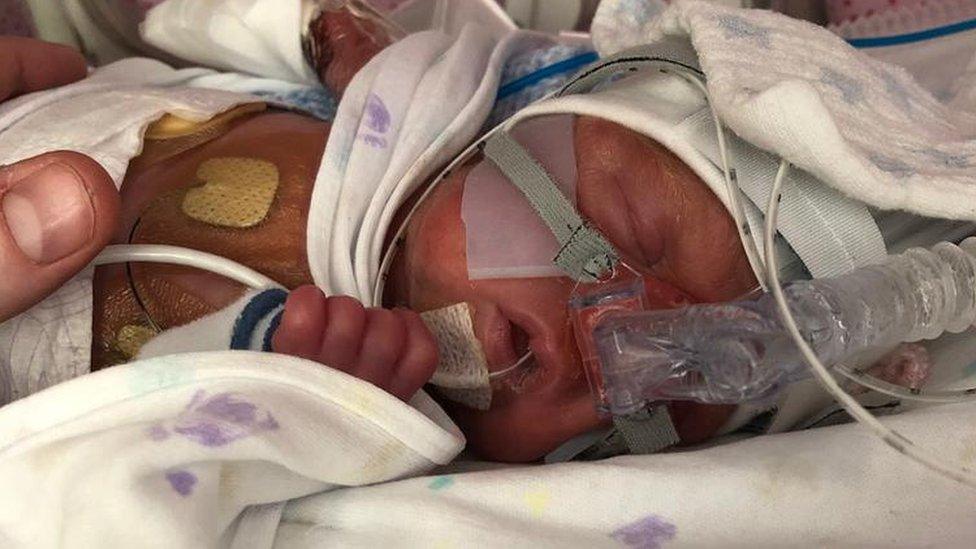
After Gabriel was born 15 weeks premature, his mum had to leave her job
Two thirds of fathers of premature and sick babies are being forced to return to work while their child is in intensive care, a charity has said.
Of 737 parents surveyed by the neonatal charity Bliss and BBC Radio 5 Live Investigates, 77% said they were not given enough time off.
One in 10 parents had to leave their job as a result of their baby's stay in hospital, the results suggest.
The government is reviewing rules for parents of premature and sick babies.
Gemma Reid, from Surrey, gave up her job as a special educational needs teacher when her son, Gabriel, was born 15 weeks early.
Gabriel suffered heart, brain and lung problems and developed sepsis.
'Big difference'
When Gabriel was born, Gemma, 34, and husband Andy, 37, decided to take three months' shared parental leave so Andy could look after Gabriel's four-year-old sister Betsy, and see his son in hospital.
But this meant Gemma was left with just six months paid leave, which came to an end two weeks after Gabriel was taken home.
"The thought of us having extra time would have made a big difference for bonding," Gemma said.
"Financially it would have had an impact, and for my career choices. We would have really welcomed more time.
"We were at hospital every day. That doesn't really feel like maternity or paternity leave at all."
Gabriel has made a good recovery, but the couple have had to cope with a big change to their plans as a family.
"I'm very grateful he's here and I wouldn't swap that," she said. "I have given up a job I love and I will hopefully one day return to that.
"But in the meantime we are staying in our little one-bedroom flat."
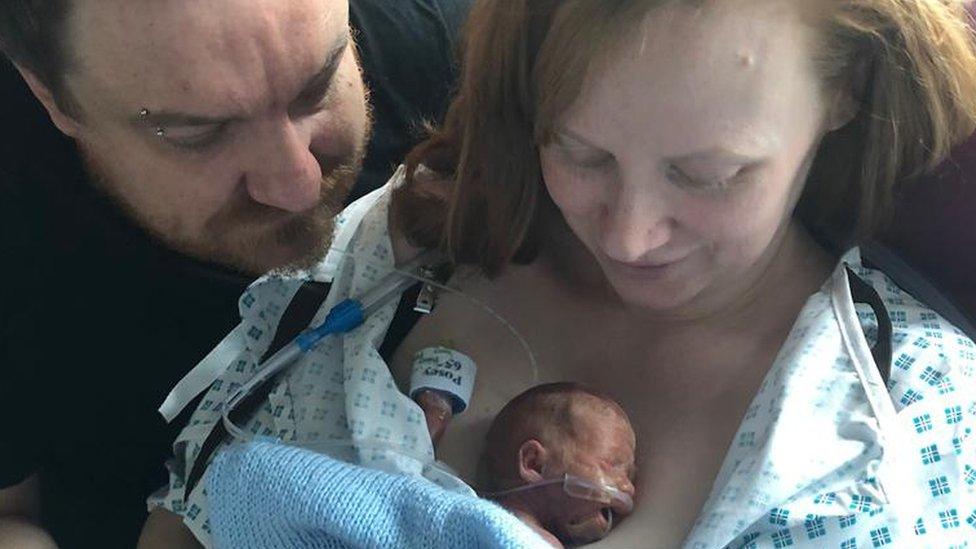
Gemma's maternity pay stopped just two weeks after son Gabriel came home
According to Bliss, around 100,000 babies born every year need intensive care in their first weeks of life.
But Gemma and Andy's situation is not unusual. One in 10 of all parents surveyed by Bliss said they left their job completely, because of their baby's extended time in hospital.
Parents said that while some employers were sympathetic, others refused to grant more time, and 66% of dads said they returned to work while their baby was still receiving neonatal care.
Bliss and other organisations like The Smallest Things have been campaigning for the government to extend parental leave, and to pay for parents of premature or sick babies to reflect the length of time babies have spent in hospital.

Gabriel is now thriving
Caroline Lee-Davey, chief executive of Bliss, said: "Statutory paternity leave runs out long before many babies born premature or sick come home from hospital. This forces many dads and partners to be signed off sick or go back to work while their baby fights for their life.
"This is not good for babies or their parents - but it also is not good for employers when valued employees are either struggling to do their jobs while under immense stress worrying about their sick baby, or having to sign off sick or leave work altogether rather than take a planned leave of absence with their employer's full support."
Currently, statutory maternity leave starts as soon as the baby is born, and statutory paternity leave of up to two weeks starts at a date agreed with the employer.
Campaigners are asking the government to change the law to guarantee that parents' paid leave will be extended by the period of time their baby is in hospital.
David Linden, the SNP MP for Glasgow East, has two children who were born prematurely, and chairs the All Party Parliamentary Group on Premature and Sick Babies.
He said: "These powerful survey responses back up the very same experiences I had when my own two children were born prematurely.
"So I firmly believe that the time has now come to act and extend the statutory element of parental leave to take into account the unique and challenging circumstances faced by the families of premature babies."
The Department for Business, Energy and Industrial Strategy has announced it is carrying out a "short, focused internal review" of the rules for parents of premature and sick babies and those who experience multiple births, to better understand the barriers they face in the labour market.
5 live Investigates is on BBC Radio 5 Live, February 17 at 11:00 GMT - catch up on BBC Sounds
- Published12 November 2018
- Published24 October 2016
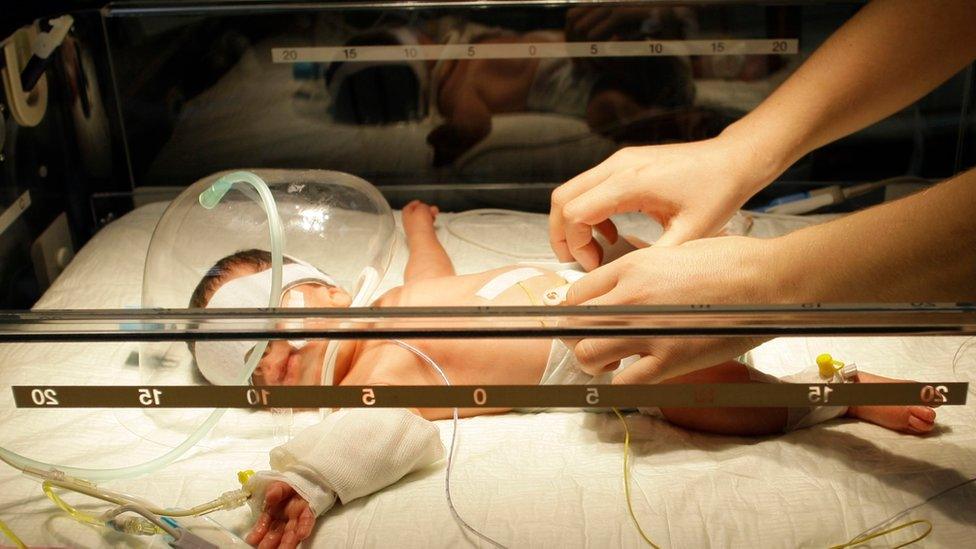
- Published24 October 2016
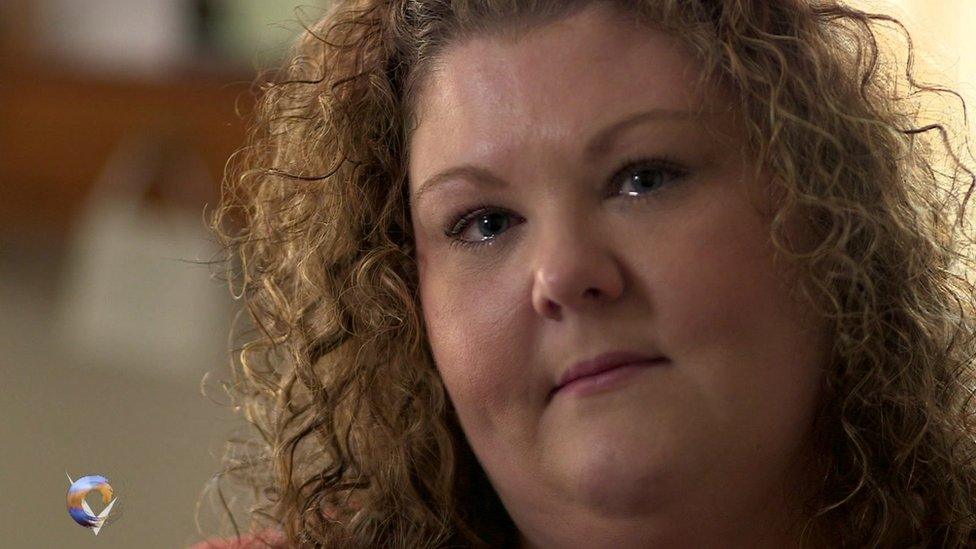
- Published3 October 2018
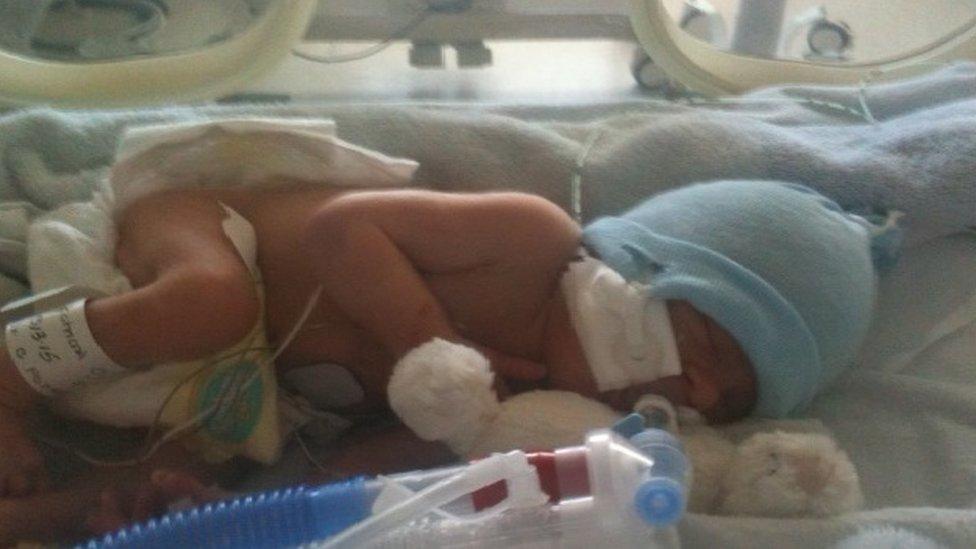
- Published20 July 2018
